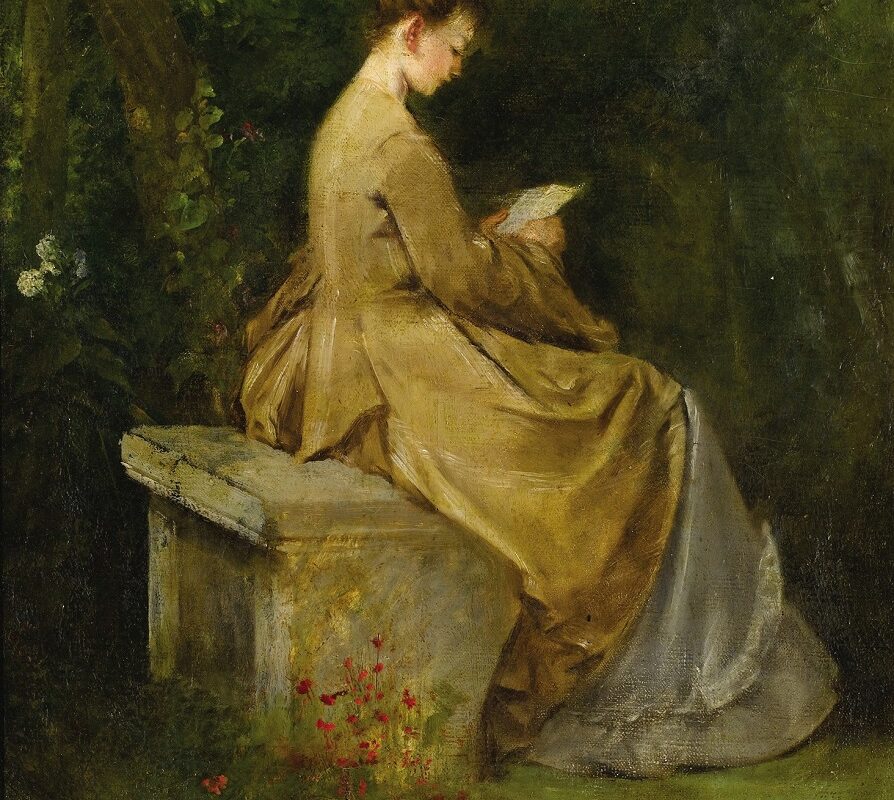I read primarily to learn. My aim when reading is to grow my mind, whether that is learning about the brain’s development, the golden age of the Dutch book trade, deepening knowledge of my literary heroes, or lesser-known philosophers. The goal is always the same; to acquire and sort out new perspectives about how the world works. It’s important to me to remember and use what I read. Technology has allowed for unprecedented ease and choice when it comes to reading material and mediums. This short piece will deal with the modern quandary of audiobooks, e-books (which I’ll refer to throughout as ‘digital’), and old-fashioned paper books, sharing which formats I prefer and why.
To start off, I am not a fan of audiobooks as I tend to tune out audio. It’s similar to the reason I don’t listen to podcasts; I just end up tuning it out as white noise and thinking about something else.
Why I Prefer Print
Most of the time, I choose paper. I prefer paper for several reasons; it doesn’t require a charge, it doesn’t emit light, and I enjoy the tactile feeling of turning a page and feeling the weight of the book shift from right to left as I progress further into the book. I also enjoy reading fiction before bed, and therefore only read fiction on paper.
I choose paper for reference material, as well. My dictionaries and style books are in print, as well as trade books on writing. Anything I consider part of my personal canon (titles from Emerson, Bacon, Didion, Sontag, and Mortimer Adler, for example) I have in print. I also tend to read older books, many of which are unavailable in a digital edition, often out of print, and usually only available by second-hand.
Numerous studies show that while most people think they read and retain information without issue on digital books, they actually perform worse on recall tasks when compared to paper. So, we think we retain a lot more on digital than we actually do. We also know that retention tends to be better when reading print, not digital, books, and that this advantage increases over time. So, if you want to remember what you’re reading over the long term, choosing the paper medium is going to put you just a bit ahead.
Reading beyond a certain length is also more difficult on digital than paper. To combat this, I keep my digital books limited to under 400 pages. That number isn’t necessarily based on a study, but from my own experience feeling bogged down in digital titles longer than that. The sensory experience of seeing the pages shift as you turn them and feeling your progress through a book is something digital simply isn’t able to replicate, and it takes a mental toll after a while.
However I Do Read Digital Sometimes
That said, I do have over five hundred titles in my Kindle library, and I frequently read on digital. The ease of digital books is hard to beat, particularly while traveling. I find the ability to carry hundreds of titles on a single device worth taking advantage of. One of my favorite uses for digital books is finding a few short titles on the places I visit and read up on the history and culture. I also find digital helpful with referencing footnotes, translating foreign text, or looking up esoteric quotes and references because you can do it all in one place on the same device. Having both the text and your notes in the same place makes digital remarkably convenient. It’s also no secret that digital books go on sale frequently and are often the more economical option.
While reading on digital, I take advantage of the highlighter options and color-code my highlights, which is helpful for when I go back and review my notes. Keeping in mind that our recall suffers a bit when reading digital, I write my notes on paper for both paper and digital books, so either way I’m reading with a pen in hand. (This study, one of many, demonstrates that writing by hand is more engaging with short-term memory than typing.)
When it comes to digital books, I try to use them as strategically as possible, by which I mean I pay attention to how detailed the book is and let that determine whether I buy it on digital or in print. This is easily done with the “peek inside” or summary options Amazon provides for free. In keeping with what the studies above mentioned, the titles we read on digital should be more general, not technical, and shorter. All of my philosophy texts and most historical tomes are paper copies because they are more technical. However, I have many narrative nonfiction, essay collections, and shorter books, like John McWhorter’s The Language Hoax, for example, all on digital copies.
The exception to my 400-page rule is the many excellent omnibuses gathering all or most of a writer’s work into a single collection for pennies. I have all of Orwell and Emerson, for example, on the Kindle app so I can access their work at any time anywhere, something which would be nearly impossible with paper copies. Likewise with Montaigne, Shakespeare, and Fitzgerald. All of these are available as e-books for less than $3, making them well worth the bargain. You can fill out quite an extensive a digital classical library for under $20, which continues to amaze me. The search function of the Kindle app makes it incredibly easy to locate topics or exact quotes, as well, which means I can copy-paste a quote from the app to my typed notes in seconds rather than taking more time to locate and type it out. That said, I typically don’t read extended passages on the digital version, instead quickly finding the passage I want to reread.
As you can see, the bulk of my reading is done on paper, but I’m not opposed to using digital books in ways that make sense. The biggest question in the print vs digital debate remains, “What do you want to take away from your reading time?” Print remains the more reliable choice for recall, but digital has its conveniences and benefits, too. Taking advantage of the technology we’re afforded, I prefer print, but see the beauty of digital books and use them both to work with my reading habits, not against them.
Image: Lady Reading on a Bench, Mariano Fortuny y Madrazo. (Spanish, 1871-1949)




